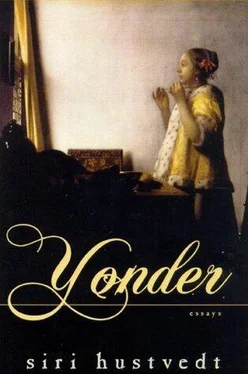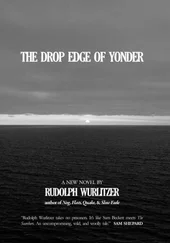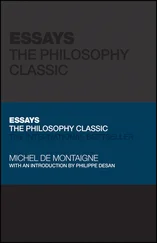Fitzgerald did not give part of Nick’s story to Michaelis because it was convenient. By seamlessly transferring Nick’s vision into Wilson’s Greek neighbor, Fitzgerald lifts the narration out of the “merely personal.” Nick sees beyond himself, and this second sight is reinforced by the eyes of Eckleburg and the owl eyes of the man in the library. Nick sees vicariously what Michaelis and another man actually witness: Myrtle’s dead body, the body Daisy will not see and cannot face. It is more than enough. The men undo Mrs. Wilson’s shirt “still wet with perspiration” and see “that her left breast was hanging loose like a flap, and there was no need to listen to the heart below.” Later Nick tells Gatsby, “She was ripped open.” He did not have to be there to see. For a moment, with Nick, the reader stares into the heart of being, and it has stopped. I see what I did not see. I experience that which is outside my own experience. This is the magic of reading novels. This is the working out of the problem of illusion. I take a book off the shelf. I open it up and begin to read, and what I discover in its pages is real.
A few years ago a friend of mine gave a lecture at Berkeley on the femme fatale, a subject he has been thinking about for years. When I met him, he was a graduate student at Columbia University, but now he is a full-fledged philosopher, and when it is finished, his book will be published by Gallimard in France and Harvard University Press in America. He is Belgian but lives in Paris, a detail significant to the story, because he comes from another rhetorical tradition — a French one. When he finished speaking, he took questions, including a hostile one from a woman who demanded to know what he thought of the Antioch Ruling — a law enacted at Antioch College, which essentially made every stage of a sexual encounter on campus legal only by verbal consent. My friend paused, smiled, and replied: “It’s wonderful. I love it. Just think of the erotic possibilities: ‘May I touch your right breast? May I touch your left breast?’” The woman had nothing to say.
This little exchange has lingered in my mind. What interests me is that he and she were addressing exactly the same problem, the idea of permission, and yet their perspectives were so far apart that it was as if they were speaking different languages. The woman expected opposition, and when she didn’t get it, she was speechless. Aggressive questions are usually pedagogic — that is, the answer has already been written in the mind of the questioner, who then waits with a reply. It’s pretend listening. But by moving the story — in this case, the narrative of potential lovers — onto new ground, the young philosopher tripped up his opponent.
It is safe to assume that the Antioch Ruling wasn’t devised to increase sexual pleasure on campus, and yet the new barriers it made, ones which dissect both sexual gestures and the female body (the ruling came about to protect women, not men), have been the stuff of erotic fantasy for ages. When the troubadour pined for his lady, he hoped against hope that he would be granted a special favor — a kiss perhaps. The sonnet itself is a form that takes the body of the beloved apart — her hair, her eyes, her lips, her breasts. The body in pieces is reborn in this legal drama of spoken permission. Eroticism thrives both on borders and on distance. It is a commonplace that sexual pleasure demands thresholds. My philosopher made quick work of demonstrating the excitement of crossing into forbidden territory — the place you need special permission to trespass into. But there is distance here, too, a distance the earnest crusaders who invented the ruling couldn’t possibly have foreseen. The articulation of the other’s body in words turns it into a map of possible pleasure, effectively distancing that body by transforming it into an erotic object.
Objectification has a bad name in our culture. Cries of “Women are not sexual objects” have been resounding for years. I first ran into this argument in a volume I bought in the ninth grade called Sisterhood Is Powerful. I carried that book around with me until it fell apart. Feminism was good for me, as were any number of causes, but as I developed as a thinking person, the truisms and dogmas of every ideology became as worn as that book’s cover. Of course women are sexual objects; so are men. Even while I was hugging that book of feminist rhetoric to my chest, I groomed myself carefully, zipped myself into tight jeans, and went after the boy I wanted most, mentally picking apart desirable male bodies like a connoisseur. Erotic pleasure, derived from the most intimate physical contact, thrives on the paradox that only by keeping alive the strangeness of that other person can eroticism last. Every person is keenly aware of the fact that sexual feeling is distinct from affection, even though they often conspire, but this fact runs against the grain of classic feminist arguments.
American feminism has always had a puritanical strain, an imposed blindness to erotic truth. There is a hard, pragmatic aspect to this. It is impolitic to admit that sexual pleasure comes in all shapes and sizes, that women, like men, are often aroused by what seems silly at best and perverse at worst. And because sexual excitement always partakes of the culture itself, finds its images and triggers from the boundaries delineated in a given society, the whole subject is a messy business.
Several years ago I read an article in The New York Times about a Chinese version of the Kinsey Report, the results of which suggested that Chinese women as a group experienced no sexual pleasure. This struck me as insane, but as I began to ponder the idea, it took on a kind of sense. I visited China in 1986 to find a place still reeling from the Cultural Revolution, a place in which prerevolutionary forms appeared to have been utterly forgotten. Maybe there can’t be much erotic life, other than the barest minimum, without an encouraging culture — without movies and books, without ideas about what it’s supposed to be. When I was fifteen, I remember watching Carnal Knowledge at the Grand movie theater in Northfield, Minnesota, my hometown. Jack Nicholson and Ann-Margret were locked in a mystifying upright embrace and were crashing around the room with their clothes on, or most of them on, banging into walls and making a lot of noise, and I had absolutely no idea what they were doing. It had never occurred to me in my virginal state that people made love like that. A friend had to tell me what I was seeing. Most teenagers today are more sophisticated, but only because they’ve had more exposure. I was thirteen before I stumbled over the word rape —in Gone with the Wind. I walked downstairs and asked my mother what it meant. She looked at me and said, “I was afraid of that.” Then she told me. But even after I knew, I didn’t really understand it, and I couldn’t imagine it.
My point is this: a part of me has real sympathy for the Chinese couple, both university professors, who married, went to bed with each other faithfully every night, and, after a year, visited a doctor, wondering why no child had come from their union. They thought sleeping beside each other was enough. Nobody told them that more elaborate activity was necessary. Surely this is a case of an erotic culture gone with the wind. (In China among the class that could afford to cultivate it, the female body had become a refined sexual art form. In Xi’an I saw a very old woman with bound feet. She could no longer walk and had to be carried. Those tiny, crippled feet were the gruesome legacy of a lost art. Binding feet made them small enough to fit into a man’s mouth.) The famous parental lecture on the birds and the bees, the butt of endless jokes and deemed largely unnecessary in our world, never took place in the lives of the two puzzled professors. But where were their bodies? We imagine that proximity would be enough, that natural forces would lead the conjugal couple to sexual happiness. But my feeling is that it isn’t true, that all of us need a story outside ourselves, a form through which we imagine ourselves as players in the game.
Читать дальше












